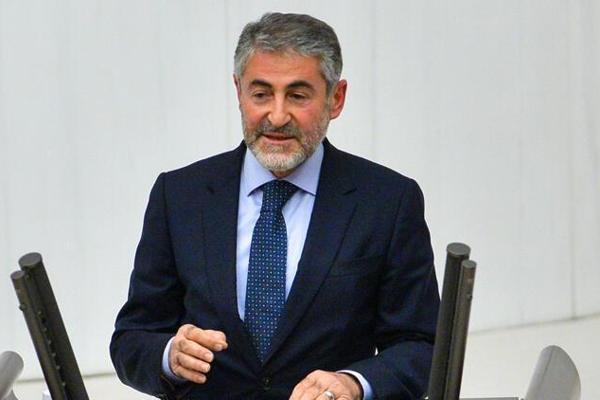Prices will stabilize by this summer: Minister
ISTANBUL


Rampant headline inflation rate in Turkey, which hit 36 percent last month, will not accelerate after January and should remain largely flat until a seasonal improvement in the cost of food leads to a general slowdown in the summer, Treasury and Finance Minister has said.
“What we need to focus on right now is inflation,” Nebati said in an interview with Bloomberg. “We have no issues with the exchange rate. It’s on its own course.”
When prodded on the direction of near-term Central Bank policy, Nebati said only that “we need to wait and see what happens in January, February and March.”
The Turkish Central Bank has lowered its benchmark one-week repo rate gradually from 19 percent to 14 percent since September 2021. The bank’s next policy meeting is scheduled for Jan. 20.
The government is working on a new credit guarantee fund for businesses and a measure to adjust the added value tax scheme, he added.
Turkish President Recep Tayyip Erdoğan’s stated goal is to boost growth and free the economy from the burden of higher interest rates Nebati said are imposed on Turkey by the “global barons of finance.”
In November 2021, the Turkish government announced a new economic approach based on low interest rates and current account deficit, and higher exports and employment.
On Dec. 21, 2021, the Treasury and the Central Bank jointly introduced a scheme to protect Turkish Lira time deposit accounts against any losses caused by FX fluctuations.
The total volume in those FX-protected deposit accounts exceeded 126 billion liras ($9.3 billion), according to Nebati’s remarks.
Meanwhile, foreign exchange deposit accounts of individuals and legal entities decreased by only $2.2 billion in the week ending on Jan. 7, according to the Central Bank’s weekly data.
The lira, which weakened 44 percent last year, gained 0.4 percent to 13.55 to the U.S. dollar on Jan. 14.
With the lira no longer in a free fall, Nebati expects the lira’s weakness and rising energy costs to feed into inflation in January and then to preside over a natural decline to more manageable levels at the end of 2022.
“There is only one thing that’s left and that’s inflation,” Nebati said. “We’ll enter the general elections in June 2023 with single-digit inflation.”
The government will keep juicing up the economy, but this time credit stimulus will be “selective,” he said.
The credit guarantee fund, through which companies could access borrowing backed by the government, is expected to announce a new loan package by the end of January, Nebati said. Manufacturers in critical sectors will benefit from those cheaper loans, he added.
The ministry will also inject capital into top state banks to ensure they keep lending to businesses, he said, with an announcement on the size of the boost by the end of January.
“The year 2022 will be one of turnaround, stability and one where things get back on track,” said the finance minister.
